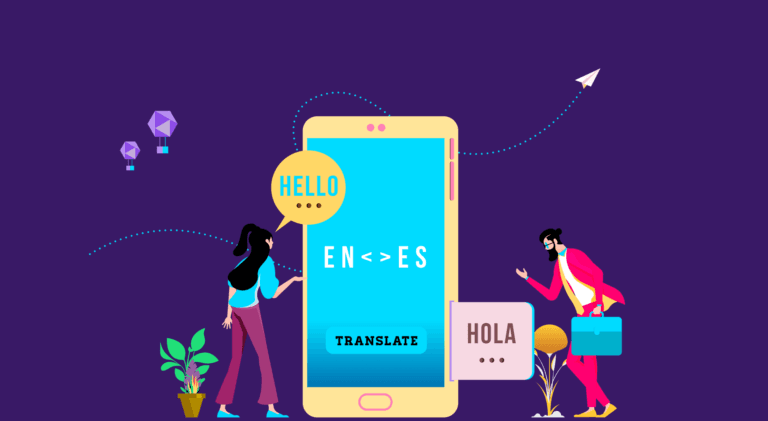
To some people, interpreters and translators are the same. They mistake these two professions all the time. However, there are some significant differences between an interpreter and a translator. You don’t have to be a language expert to understand the differences.
Even though the interpreter vs. translator debate is an eternal matter of perplexity, this blog outlines the top 5 differences between these two seemingly similar professions. But, before delving into the differences between these two professions, let’s look at the similarities.
Interpreter Defined
Interpreters are language professionals who translate on the go. It is a live service that does not allow people to think and create content. Interpreters work alongside others and translate as soon as the original speech is delivered.
These professionals translate the spoken words while remaining within the context. They don’t change the meaning of the statement. However, sometimes word-by-word interpretation becomes impossible because the interpreters work in real-time with their clients while interpreting their words.
Similarities Between Interpreters & Translators
If you take a closer look, you will find countless similarities between an interpreter and a translator. The similarities are essential aspects to discuss in the interpreter vs. translator debate.
● They both work with language: An interpreter and a translator both work in the area of language. Their professional area is the source of language. They deal with an original language, which they translate into another language.
● Language extracting: Both interpreters and translators take the meaning from the source statement and translate it into the target language.
● Qualification: Both professionals need qualifications for their work.
Differences Between Interpreters & Translators
Even though interpreters and translators have a lot in common, the professions have a lot of differences. Given below is a list of 5 differences between interpreters and translators.

1. Tools
When you look at both professions, you will see that the most significant difference between translation and interpretation is the ability to use tools. Translators have the luxury of working with digital-based tools, including computers and tablets. They also have ample software applications such as language technology to assist them in their profession.
However, interpreters are not that fortunate. An interpreter’s work takes place in real-time. They don’t get the time to think or compose their statement. They use their knowledge and language skills to translate the language and do their work quickly.
2. Ability
Aside from language skills, a translator needs technical skills. However, an interpreter does not require technical gadgets when they are on their jobs. Instead, they need excellent language skills and strong memory. Without these two, they will not be able to extract the context of spoken words and then translate it to the target language.
3. Work format
The work format differences usually get unnoticed when someone talks about the differences between translation and interpretation. Translators work with texts. Written words dominate their work process. However, interpreters work with spoken words. They deal with spoken language.
4. Work delivery
There is a vast difference between translation and interpretation regarding work delivery. Translators work at their own pace. They have the freedom to take the time to translate. Because their work takes place a long time after creating the original language source, they can set their deadline for work delivery.
However, an interpreter does not have such luxury. Interpretation takes place in real-time. The interpreters work alongside their clients and interpret the spoken language. Therefore, they hardly get the opportunity of working at their preferred pace or time. In this field, a deadline does not exist. The work takes place live and in real-time.

5. Language accuracy
A translator needs to be accurate in work delivery. The written text demands that everything is in perfect order. For this reason, a translator needs to be careful while translating. An interpreter does not require strict accuracy because they deal with spoken words, and their job is to present the message without making any changes.
Lastly, both professionals need high language skills. They both must understand the source language and target language well. The challenge lies in capturing the right tone when translating or interpreting something.
The Final Word
Understanding the difference between an interpreter and a translator is crucial for various businesses looking to hire language services and specialists.
FAQs
Interpreters translate languages orally and in real-time, while translators work with written material in a more relaxed period.
Not really, because while they are both related to language, they require different specializations, training, and skills.
A good interpreter must speak at least two to four languages.
Latest Blogs
Learn how to rank on AI search engines like ChatGPT, Perplexity, and Gemini by optimizing your content for authority, structure, and relevance. Stay ahead in AI-driven search with this strategic guide.
Explore the best healthcare SEO services for your medical practice. Improve online visibility and effectively reach more patients in need of your services.
Discover top social media agencies specializing in banking solutions, enhancing financial services and driving engagement.
Get your hands on the latest news!
Similar Posts

Translation
5 mins read
All You Need to Know About Language Translation and Terminology Management

Translation
5 mins read
6 Reasons to Translate Content into German

Translation
5 mins read